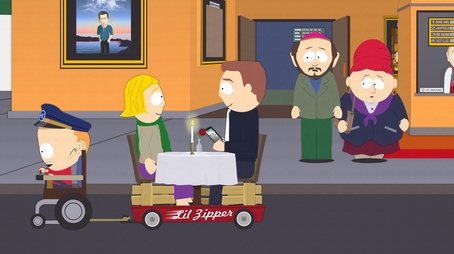
Sorry, we have not watched this yet.

Timmy’s idea to raise money for the summer camp has everyone in South Park trying out the latest trend in transportation. Timmy’s success makes him a lot of enemies and a bloodbath of epic proportions is on the horizon.
Sorry, we have not watched this yet.